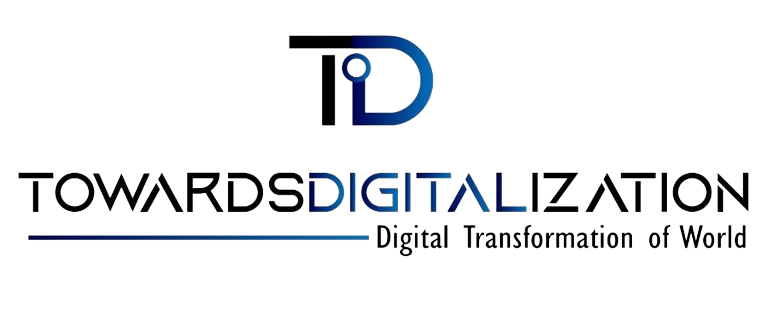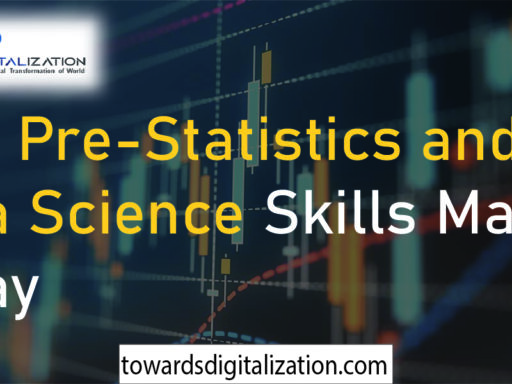Introduction
The area that is based on data has witnessed an exponential increase in the past 10 years. All sizes of organizations depend on data in order to make smarter choices, enhance operations and increase their competitive advantage. If you are new to the business, Entry level jobs in data science provide a fantastic opportunity for a start up career which is challenging but also fulfilling.

This guide will help you understand the specifics of these jobs and what skills are most demanded. Which sectors employing them, and the best way you can be prepared to get the first position within data science.
Understanding Entry Level Data Science Jobs
A data science entry-level position typically involves assisting in work related to data, under the direction by senior team members. Some of the responsibilities include data cleansing and basic analysis, as well as preparing visualisations and models. The positions aim to aid beginners learn about how to tackle business challenges, employ methods of data analysis, and get practical experience using data and tools. Although advanced modeling may not be the first thing to consider, having a solid information about analysis and reporting is vital.
Common Titles and Positions for Beginners
For those who are just beginning, there are opportunities for diverse titles. Including junior Data Scientists, Data Analysts (BI) as well as junior Data Engineer. Although a junior Data Scientist might focus on modelling while a Data Analyst may be more focused on dashboards and reports. Every job position allows applicants to interact with data. Develop the business process, and increase their skills in the field of technology. Flexible jobs and being aware of the overlapping responsibilities could enable candidates to gain more work earlier in their career.
Expectations of the Entry Level Candidates
Employers do not expect extensive knowledge of the industry, but search for applicants who are able to manage basic data tasks without fear. The ability to use Python, SQL, and the tools to visualize data is typically needed. Beyond the technical aspects the ability to think analytically, be curious and confidence in communication are also crucial. Candidates need to be able answer relevant questions, communicate the results clearly and be able to demonstrate their the ability to think on their feet through assignments or courses.
Educational Background and Required Skills
The majority of entry level data science positions require a bachelor’s degree from an area that is quantitative, such as mathematics, computer science and statistics, engineering, or. Many companies are opening up to applicants with non-traditional backgrounds, who have successfully completed bootcamps, certifications or certificates. On-line platforms such as Coursera, Udacity, and edX have structured learning routes which help students develop basic skills and build portfolios of projects.
Core Technical Skills for Beginners
The most important technical abilities comprise Python to manipulate data, SQL for querying databases and other tools like Tableau or Matplotlib to visualize data. Beginning users should be acquainted with fundamental statistics. Basic methods for data processing, and the capability to extract insight from raw data. The exposure to machine learning tools such as scikit-learn and basic models like linear regression is also an beneficial.
Soft Skills That Enhance Your Profile
Communication is crucial particularly when it comes to translating complicated research into recommendations for business. Employers appreciate the ability to solve problems as well as teamwork and flexibility. Being willing to study new technologies, seek out answers and cooperate across departments are able to differentiate the novice from those who apply. Soft skills, in conjunction with technical skills, can result in faster development and promotions within the company.
Industries Offering Entry Level Data Science Jobs
Tech companies are often the first to lead recruiting data specialists. From startups of small size to tech giants, they provide roles in analysis of products, testing A/B recommendations systems, analyses of behavior by users. Technicians at the entry-level have to deal with fast paced work environments, advanced tools. As well as teams that are cross-functional that accelerate training and personal development.
Healthcare and Pharmaceutical Sector
The health industry utilizes information to improve patient care as well as reduce expenses and improve efficiency. Beginning data scientists working can examine clinical records, laboratory findings, or other public health information. This type of job can provide the opportunity to work with sensitive data regulation compliance, as well as health informatics. It is an ideal career choice for people who are looking to do meaningful work with an impact in the real world.
Finance, Retail, and E-commerce
Fintech companies, banks and online retailers depend on data to aid in the detection of fraud, segmentation of customers and personalised recommendations. These areas have access massive amounts of data as well as fast decisions. If you are a beginner, positions within these sectors provide practical knowledge of transactional data as well as predictive models and live-time dashboards.

How to Get ready for Entry Level Data Jobs
Your work portfolio allows potential employers to view your skills and capabilities. Add 3-5 projects that deal with data cleaning, visualisation and analysis. Select real world data on platforms such as Kaggle and then document the work by posting it on GitHub or via blog articles. The portfolio you choose to showcase your work shows the ability to think critically. Solve problems and the capability to use concepts beyond classes.
Resume and LinkedIn Optimization
Write your resume focusing on technical skills, tools and projects by which you contributed towards real qualitative change. Be brief, clear and pertinent to the position for which you are applying. Stay active on LinkedIn If you’re out of work, keep an updated profile. Include keywords for your industry as well as add hyperlinks to your portfolio, or GitHub. Follow posts, engage with companies that are relevant, and connect with field of data science.
Internships and Freelance Gigs
Internships are an incredibly popular way to get into the field of data science. They also provide beneficial hands-on experiences. Search for internships on universities’ portals and startup job boards and platforms like Internshala or AngelList. The websites that provide freelancing like Upwork offer jobs that are short-term in nature and can assist you in gaining credibility and trust. Participating in volunteer activities with non-profit organizations could add real-life data experiences on your profile.
Where to Get Entry Level Data Science Jobs
Other sites like LinkedIn, Indeed, Glassdoor and Monster frequently list entry-level data science jobs. Use filters like “fresher,” “0-2 years experience” or “entry level” to further refine your possibilities. Be sure to create alerts to let you know when new opportunities are available and submit applications regularly so that you have the highest chance possible of getting hired.
Career Centers & Alumni Networks in universities
Many employers collaborate with colleges directly to attract new hires. Take advantage of your university’s career center and go to corporate presentations and job fairs. Alumni networks can be useful in reaching out to recent graduates in the field of data can lead to mentorship opportunities as well as referrals and informal interviews.
Hackathons, Meetups, and Career Fairs
Participating in hackathons as well as local meetups for data allows you to use your knowledge live and interact with similar professionals. They are often a magnet for hiring managers who are seeking the best talent. In the same way, tech career fairs offer opportunities to meet hiring managers learn about job expectations and make a lasting impression.
Interview Process for Entry Level Roles
A typical interview involves the initial screening of resumes and a subsequent code test or technical assessment. Candidates who pass are asked to participate in one or two rounds of interviews with technical experts as well as a final HR or psychological interview. Certain companies might also give cases to take home where you’ll be asked to look at information and share conclusions.
Types of Interview Questions
Expect concerns that are related with Python, SQL, basic statistical concepts, as well as understanding data. You could, for instance, have to tidy up the data, write an SQL queries, or clarify the significance of the confusion matrix. Interviews may also contain cases in which the way you think and approach will be evaluated in a different way than the code you write.
Tips for Interview Success
Make sure you practice regularly on platforms such as LeetCode as well as HackerRank. Create explanations for the portfolio you have created, and focus on the challenge, strategy as well as the end result. In interviews, explain your thoughts clearly and be sure to ask questions when there is a question. After that, send an email thanking you for your time to demonstrate the professionalism and interest.
Conclusion
The path to a successful career in the field of data science may be a bit competitive. However, having the right combination of skills in technology, practical initiatives, and network will give you an advantage. Data science positions at entry level aren’t just for stepping stones, they provide the foundation for you to develop the skills and mindset that will determine your success within this rapidly growing field. Be persistent, continue to learn and seize every chance to show your skills.
FAQs
Q 1. Do I qualify for an employment in data science as newcomer with no prior knowledge?
Indeed, many employers hire young people for positions in junior levels. Being able to demonstrate proficiency of Python, SQL, and data visualization, in addition to your own or academic work could help you find a job even without previous knowledge.
Q 2. How important is it to have a collection of resources for those who are just beginning in the field of data science?
Portfolios are essential as it shows your abilities as well as your problem solving skills. The majority of recruiters look at GitHub blogs or other repositories in order to assess a candidate’s actual skills beyond their academic backgrounds.
Q 3. Do you need to complete an internship before being considered for entry-level positions?
They aren’t required however they can be beneficial. If you do not have an internship or experience, your personal work such as open source projects, contributions to the community, or even freelance data work will fill in the gap.
Q 4. What companies are hiring fresh graduates for jobs in data science?
Tech startups, mid sized firms as well as large companies such as Accenture, IBM, and TCS employ entry-level specialists in data science. Jobs are frequently advertised on LinkedIn or Indeed as well as the company’s career pages.
Q 5. Are there any commonly used jobs for data scientists at entry-level names?
The most common titles are junior data Scientist Data Analyst Business Intelligence Analyst, Data Engineer as well as Machine Learning Intern. They may have different names but usually share similar fundamental abilities.
Q 6. What are the best tools to learn to increase my odds?
The focus should be upon Python, SQL, Excel, Jupiter Notebooks, and visualization tools such as Tableau as well as Power BI. A familiarity with Scikit-learn, Pandas and NumPy can be extremely beneficial to those in entry level positions.
Q 7. Are data science careers a viable profession for people who are just starting out?
Yes, data science can provide the potential for long term growth, an abundance of demand and numerous choices for career advancement. Through consistent education and hands-on experiences, newcomers can establish a an impressive and lucrative career in this area.








